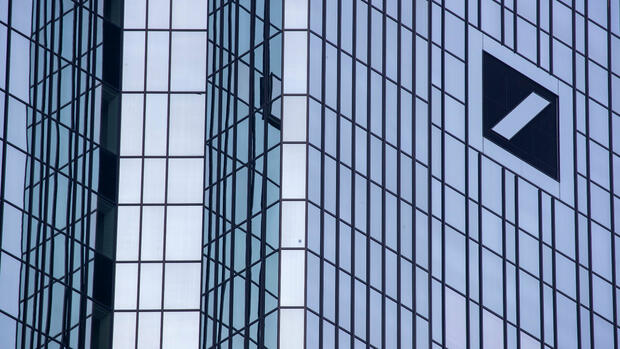The British competition authority now wants to examine the opinion of the institute.
(Photo: dpa)
Frankfurt Deutsche Bank has admitted to illegal collusion in trading in British government bonds. The institute had alerted the British authorities to the fact that it had been involved in anti-competitive activities, the Competition and Markets Authority (CMA) said on Wednesday.
According to the findings of the CMA, Germany’s largest money house in trading British government bonds agreed prices and trading strategies with the US banks Citi and Morgan Stanley, the British HSBC and the Royal Bank of Canada from 2009 to 2013.
A small number of dealers from the banks involved exchanged sensitive information via the chat of the financial services provider Bloomberg. As a result, competition has been adversely affected – at the expense of pension funds, the British government and British taxpayers, among other things.
“A functioning, competitive bond market is not only important to millions of taxpayers and savers, it is also critical to Britain’s reputation as a global financial hub,” said CMA Director General Michael Grenfell. The offenses that the banks are accused of are therefore “very serious”.
In addition to Deutsche Bank, Citi has also admitted to wrongdoing, but the CMA, Morgan Stanley, HSBC and the Royal Bank of Canada have not yet declared. The institutes now get the chance to present their point of view before the CMA makes a final decision.
The list of scandals is long
Since Deutsche Bank informed the CMA of the agreements, they will go unpunished, the competition authorities said. A possible sentence for Citi will be reduced because of the admission of the US institute.
A Deutsche Bank spokeswoman said the bank proactively reported the matter and fully cooperated in the subsequent investigation. “As a result, we have been granted a temporary waiver by the CMA, so we do not expect to be fined.”
Deutsche Bank is also suspected of violating competition rules by colluding in trading in government bonds denominated in euros. According to their own statements, the Frankfurt-based company approached the authorities in this case too – and therefore also do not expect a fine.
>> Read here: Deals by the Assad clan trigger raids on Deutsche Bank
In recent years, Deutsche Bank has repeatedly made headlines due to scandals and weak control systems. In 2022, the institute was sentenced to a fine of seven million euros for suspected money laundering cases that were reported too late. Among other things, the bank had not reported a payment it had made from the family of the Syrian dictator Bashar al-Assad.
Because the money house reported the greenwashing allegations to its fund subsidiary DWS too late, it also has trouble with the American financial regulator. Supervisory Board Chairman Alexander Wynaendts therefore wants to focus on strengthening the control systems in the coming years.
“We must continue to work hard on our internal controls and the elimination of weaknesses in order to improve and meet all the requirements of the supervisory authorities,” Wynaendts told the Handelsblatt earlier this year. “The bank has made progress, but much remains to be done.”
More: DWS boss admits “exuberant marketing” for green investments
